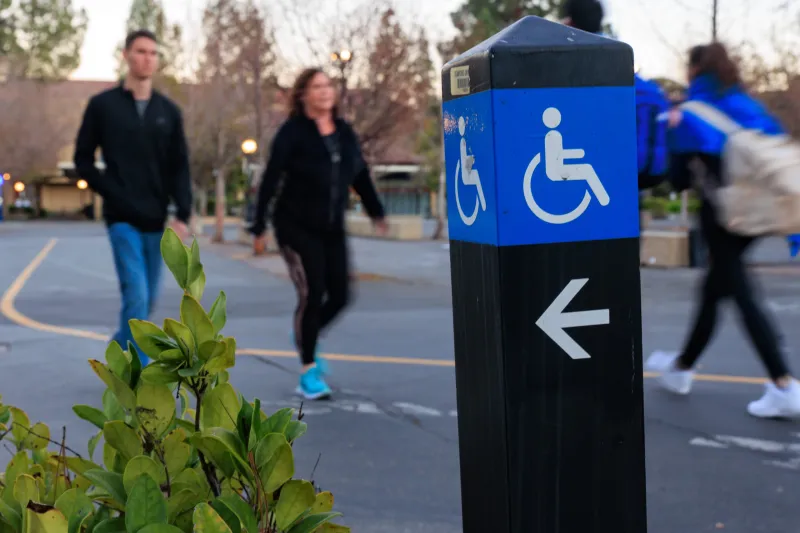The Disability Community (DisCo) Space program coordinator resigned with no replacement in November 2022, leaving disability advocates uncertain of the space’s future.
The DisCo space, which officially opened in February 2022 after years of student advocacy, was created to be a space where students with disabilities can find community and celebrate their identities.
“It’s part of the effort of recognizing the sort of multiplicities of the disabled identity,” said Lloyd May, a third-year music and technology Ph.D. student, who has been involved with the DisCo space since its inception.
“We don’t just come together when we need things or when we feel like we’ve been hard done by and need to advocate for each other or stand by each other,” May said. “We definitely do that but we’re also people and students who want to hang out and celebrate our identities.”
Since its opening, the space, which is still in its pilot program phase, has had two program coordinators who were tasked with managing the space and its programming. The first coordinator resigned in July after 10 months on the job, and the most recent program coordinator, who started the position in September, resigned in November.
Cricket Bidleman, a journalism masters student and Daily staffer, expressed her concerns over the resignations, particularly as the space is still in its pilot phase.
“How are we going to know if the space is successful? How are we supposed to measure success if there’s a bunch of dead time between the staffers?” she said.
Given this resignation, May expressed his concern that the job might be too overwhelming given the needs of the disability community. “There’s a lot of need… to have more advocacy and resource efforts, to have a stronger social community and to have a strong academic life centered around disability,” he said.
May said the DisCo space was an important place for students with disabilities and other Stanford community members. “If you’re interested in disability from an academic or design perspective, there’s not really a lab or a group that you can go to. It’s very spread around,” May said. Though many hope the DisCo Space can fill this hole, bringing together the disability advocacy efforts on campus and providing a social space on campus may prove too overwhelming, May said.
Bidleman said that the administration could use this vacuum as an opportunity to “build allyship.” She said she was hopeful students without disabilities would also contribute to the space.
“Disabled students are experts on disabled student issues, because we have to deal with them all the time. But that doesn’t mean that we should always be the ones being the ambassadors for those issues or staffing a community center because we have to deal with those issues,” Bidleman said.
The University will soon be holding a town hall to hear from community members before exploring staffing options for this role and the DisCo space in general, according to University spokesperson Luisa Rapport. Rapport wrote that more information on this town hall will be available later in the quarter.
“Stanford is committed to continuing to provide a centrally and conveniently located place for student-initiated programs and events celebrating the disability community,” Rapport wrote.
